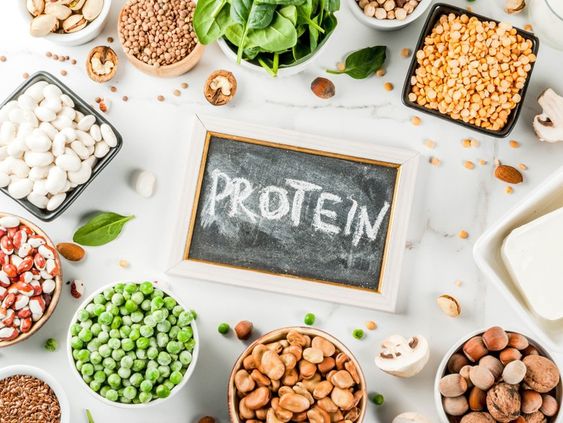Introduction
In recent years, there has been a notable increase in the number of individuals adopting a plant-based diet. Whether driven by health concerns, ethical considerations, or environmental awareness, more and more people are embracing the many benefits of consuming less meat and incorporating more plant-based foods into their daily lives. One common question that arises for those transitioning to a plant-based lifestyle is how to ensure they are getting enough protein.

Contrary to popular belief, consuming adequate protein on a plant-based diet is entirely achievable and easier than you might think. The key lies in understanding the wide variety of protein-rich plant sources available and how to incorporate them into a balanced and delicious diet. From legumes and lentils to nuts, seeds, and whole grains, nature provides an abundance of options to meet your protein needs without relying on animal products.
This article delves into the world of plant-based proteins, exploring some of the best sources available and highlighting their nutritional value.
Power Up with Legumes
Legumes, including beans, lentils, and chickpeas, are nutritional powerhouses and excellent sources of plant-based protein. For instance:
- Lentils: A versatile legume that's packed with protein and fiber. They cook quickly and are a great addition to soups, stews, and salads.
- Chickpeas: High in protein and fiber, chickpeas are also a good source of iron and folate. Enjoy them in hummus, falafel, or roasted as a crunchy snack.
- Black beans: A staple in many cuisines, black beans are rich in protein, fiber, and antioxidants. Add them to burritos, tacos, or salads for a protein boost.
Nuts and Seeds: Small but Mighty
Don't underestimate the power of nuts and seeds! These small but mighty foods are packed with protein, healthy fats, and essential nutrients.
- Chia seeds: These tiny seeds are a complete protein, meaning they contain all nine essential amino acids. They are also an excellent source of fiber and omega-3 fatty acids.
- Almonds: A satisfying and portable snack, almonds provide protein, fiber, vitamin E, and magnesium.
- Hemp seeds: Another complete protein option, hemp seeds are rich in omega-3 fatty acids and minerals like iron and zinc. Sprinkle them on salads, yogurt, or smoothies.
Embrace Whole Grains
Whole grains are not only a good source of carbohydrates but also offer a decent amount of protein per serving.
- Quinoa: This ancient grain is a complete protein and a good source of fiber and iron. Enjoy it as a warm breakfast porridge, a side dish, or in salads.
- Brown rice: A more nutritious alternative to white rice, brown rice provides protein, fiber, and magnesium.
- Oats: A breakfast staple, oats are a good source of protein, fiber, and beta-glucan, a type of soluble fiber that can help lower cholesterol levels.
Incorporate Plant-Based Proteins into Every Meal
The key to meeting your protein requirements on a plant-based diet is to include protein sources in every meal and snack. Enjoy a lentil soup for lunch, snack on a handful of almonds, and incorporate tofu or tempeh into your stir-fries for dinner. By incorporating a variety of plant-based protein sources into your diet, you can enjoy delicious meals while providing your body with the nutrients it needs to thrive.

.jpg)